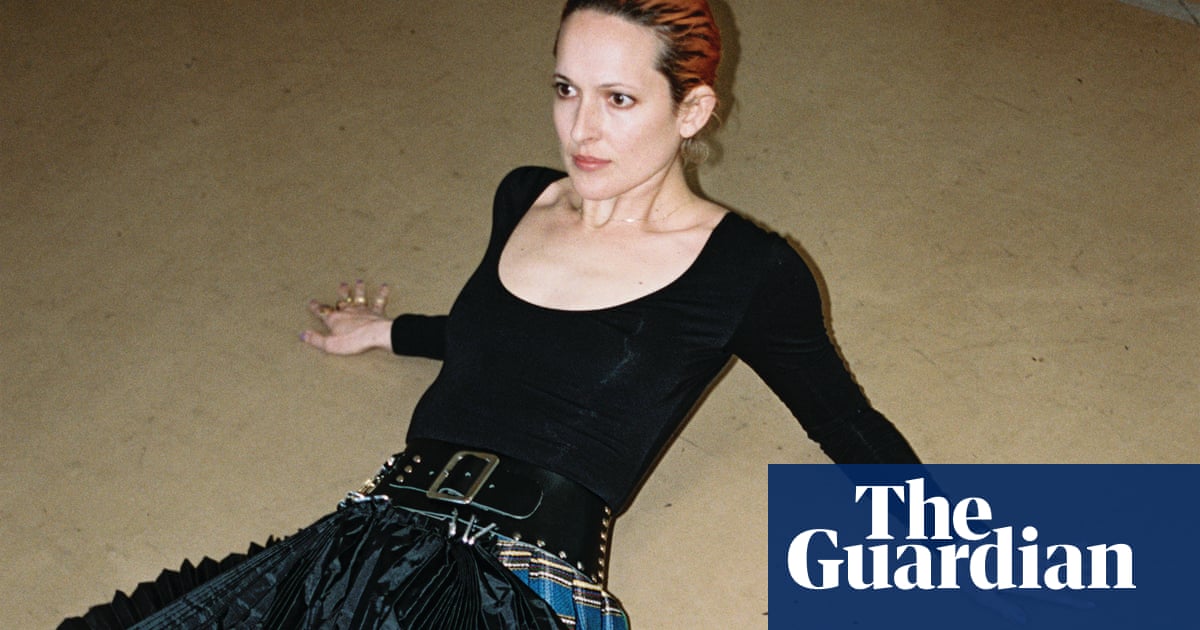
The Lebanese ‘dance designer’ has established himself as the go-to for a host of Arab music icons
PARIS: Hadi Awada is something of a rarity in the Arab music scene — a Lebanese artist who has managed to make a name for himself in Egypt.
The dancer, choreographer and director has become the go-to guy for some of the most famous pop stars from Lebanon and Egypt — and, more recently, Iraq and Saudi Arabia — when they want to impress their fans with their footwork.
And you can see why just from talking to him — Awada’s enthusiasm is palpable and infectious. He has a child’s playful spirit. Lebanese singer Maya Diab, one of his many collaborators, says he has “a big heart,” and a big smile to go with it.
That positivity hasn’t always been easy to come by for Awada though. His parents insisted that he should ignore his desire to dance and continue his medical studies. Awada elected to pursue his dream instead.
“I went through a lot of difficult things between the ages of 17 and 24,” Awada tells Arab News. “Family restrictions made me push myself harder, in order to prove to everyone that I could succeed and that nothing and no one could stop me.”
He certainly did that. In 2008, aged 18, Awada was accepted at the highly selective Belarusian Academy of Arts, where he studied choreography and cinematography. In 2014, in New York, he was awarded a distinction in the prestigious International Modeling and Talent Association competition.
“I was selected by the John Robert Powers Agency to represent Lebanon. It was complicated for me, because I did not have an advisor in New York. But the competition was very beneficial. I came back to Lebanon with a gold medal.”
Awada’s next big break came at home in Lebanon. Aged 25, he became the choreographer of the wildly popular “Star Academy” TV talent show. This gave him the opportunity to work with the biggest music stars in the Arab world.
“I felt that I had fulfilled my original goal and that I had reached the top of the mountain,” he says of landing that job. However, that also meant that he had to find a new goal.
“By the end of ‘Star Academy,’ I was lost,” he says. “It took me a long time to understand that I could still do a lot of things.”
His perseverance and hard work not only allowed him to become the choreographer to many icons of modern Arabic pop music, but also to become a music video director, and a friend to several of them, particularly Diab, with whom he has a longstanding relationship.
In 2018, Lebanese singer Myriam Fares expressed to her millions of followers on Instagram the admiration she feels for Awada, whom she believes to be “the greatest choreographer in the Arab world.” And his collaborations with — among others — Lebanese diva Haifa Wehbe and two of the region’s hippest artists, Mohamed Ramadan of Egypt and Saif Nabeel of Iraq, back up Fares’ words.
Awada himself is quick to announce that he does not share her opinion. But equally quick to stress that his desire is to be number one, and that he is still not satisfied, despite his success.
“I am proud of myself. I wouldn’t have made it if I hadn’t (worked so hard). I received, very early on, the trust of huge artists like Maya Diab, Myriam Fares and Haifa Wehbe, as well as the support of (‘Star Academy’ director) Toni Kahwaji. I’m happy to be able to constantly reinvent myself by coming up with new ideas or new moves.”
He now displays many of those new moves on TikTok, often setting his followers challenges, such as replicating the dances he has choreographed for Nabeel.
For Awada, a dance is much more than just a series of movements. It is a story. One that incorporates numerous artistic and cultural references. A good example is his performance at Egypt’s El Gouna Film Festival in October as a tribute to the illustrious career of Egyptian actor Samir Ghanem, which combined 10 dances in less than three minutes. “I spent a whole month watching all his performances and films,” Awada explains of his preparation for that show. “It was a huge honor for me.”
Recently, Awada has become increasingly influential in the Khaleeji music scene, particularly through his work the Saudi singer Oumaima Taleb. And it’s clear that Awada remains as passionate about his work now as when he started out.
“Every artist has their own character,” he says. “You have to adapt the choreography to their personality. I see myself as a dance designer.”
This story was adapted from an original piece by Arab News France












